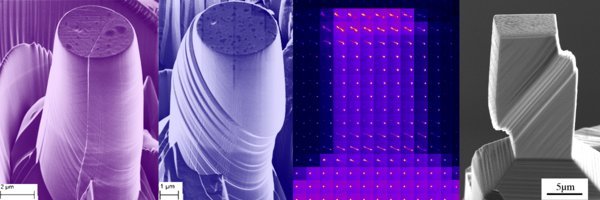
Global and local fracture properties of interfaces at variable temperature for robust material combinations in power devices
Experimental studies of the interfacial adhesion and interfacial fracture strength (energy release rate) are crucial to pave the way for mechanically and thermo-mechanically robust and reliable electronic devices. Our research mission is to examine the adhesion and fracture strength of interfaces between dissimilar materials.
The mechanical testing includes 4 point-bending fracture experiments on material stacks to determine the weakest interface in a qualitative and quantitative manner. As materials are exposed to elevated temperatures during fabrication/processing and during service we will extend these tests to elevated temperatures (up to 400°C).

Furthermore, many interfaces are buried and close to the next interface. This requires novel site specific and highly localized mechanical fracture experiments which will be realized by implementing an in situ loading set-up in a focused ion beam (FIB)/scanning electron microscope (SEM) system. The results will be linked with microstructural changes (e.g. phase transformation, interdiffusion, reaction, de-wetting, and segregation etc.) by different advanced TEM methods.
The project is performed within the EU framework program EPPL (Enhanced Power Pilot Line), financially supported by grants from Austria, Germany, the Netherlands, France, Italy, Portugal and the ENIAC Joint Undertaking (ENIAC JU Grant Agreement no. 325608).
